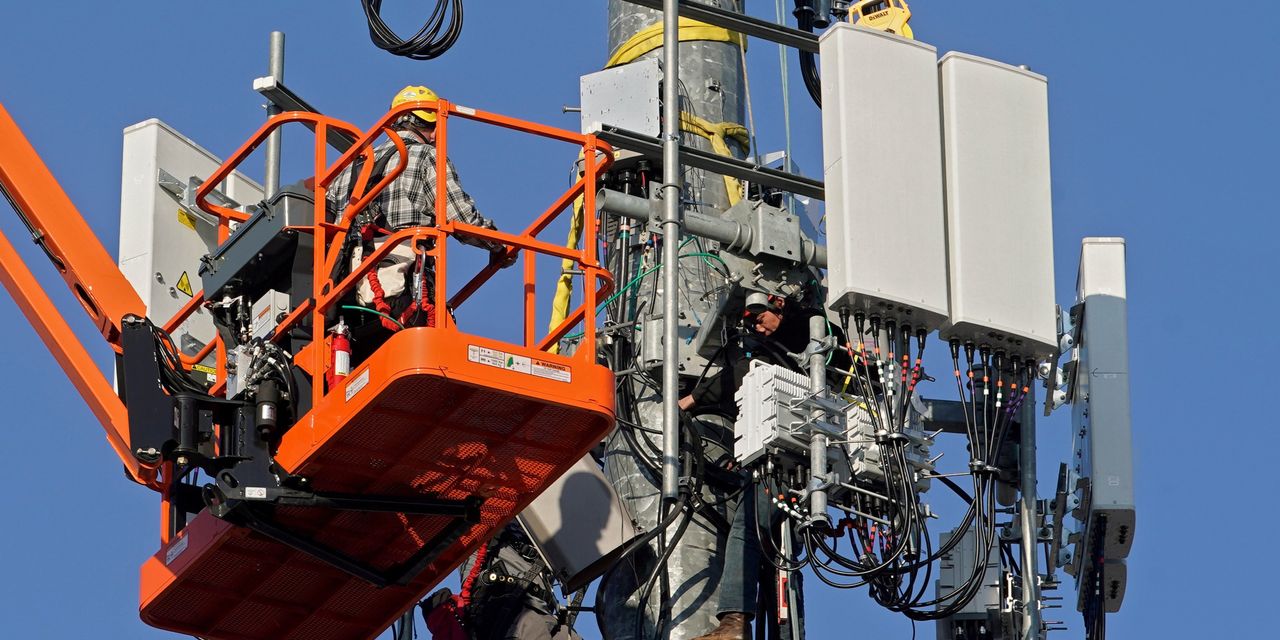Verizon Communications Inc.
is enlisting artificial intelligence models to help place thousands of 5G wireless transmitters for optimal performance.
Later this year, the company will begin a multibillion-dollar rollout of midband spectrum, which expands coverage of its existing ultra wideband 5G wireless service.
Maximizing coverage with the least number of transmitters is a priority, said
Shankar Arumugavelu,
senior vice president and global chief information officer of Verizon.
“When we build out these networks, these are very capital-intensive,” he said. “We have to make sure that we are being very judicious in terms of how we are investing our capital.”

Shankar Arumugavelu, global chief information officer of Verizon Communications.
Photo:
Verizon Communications Inc.
The models, designed by in-house data scientists and other employees, factor in a number of variables that can alter the strength of 5G signals, like buildings, bridges, terrain, the position of the transmitter, as well as other transmitters nearby.
Verizon, along with rivals
AT&T Inc.
and T-Mobile US Inc., is racing to build out nationwide 5G service, a yearslong effort slowed by the lack of available airwaves for fast transmission and long signal ranges, and by the deployment of new network equipment, analysts have said.
The largest U.S. carrier, Verizon began using AI models in 2018 to determine the best spots to install transmitters for its ultra wideband spectrum and is using AI again for its midband spectrum, considered the sweet spot in terms of range and speed. Verizon expects to cover 100 million people with midband spectrum by March 2022, according to the company.
“Without AI, we would not be able to do this. Period,” Mr. Arumugavelu said.
In a U.S. government airwaves auction earlier this year, Verizon landed more than half of the midband spectrum.
The carrier will pay more than $50 billion for those airwaves and related expenses and is planning a total of $10 billion in capital expenditures over the next three years to expand its midband range, the WSJ has previously reported.
Other carriers are also using AI in their 5G plans.
T-Mobile, which is also bringing out its midband 5G network, has used AI models to help engineers prioritize the locations for upgrading its 4G gear to 5G, said
Grant Castle,
vice president of device engineering and technology labs.
So-called small cell 5G transmitters, or antennas, are about the size of a backpack and are placed on vertical structures like utility poles or buildings.
Verizon’s AI system can point to the best such perches by weighing various factors within specific ZIP Codes and how well the signal could cover the area, Mr. Arumugavelu said. Using computer-vision technology, the models can analyze spatial and geographic elements—bridges, trees and building heights around specific intersections, for instance—and find the most viable spot for a 5G transmitter, he added.
The technology can also recommend the best positioning for the antennas so that the signal covers the area without causing interference with other antennas nearby, he said.
Billions of dollars are at stake in the rollout of midband 5G spectrum, which is why Verizon is relying on AI, said
Sid Nag,
vice president of research for cloud and edge computing at technology research firm
Gartner Inc.
“They have to be very precise and clinical to identify the places where they are going to place the nodes,” he said.
Businesses are expected to adopt 5G faster than consumers, partly because of the technology’s potential to enable connectivity for drones, autonomous vehicles and remote healthcare, Mr. Nag said.
Verizon and other carriers are also focused on making sure the 5G nodes are in just the right spots because they want their customers to be as satisfied as possible with the service, he said.
“Enterprises are hungry to use 5G,” he said.
Write to Sara Castellanos at sara.castellanos@wsj.com
Copyright ©2021 Dow Jones & Company, Inc. All Rights Reserved. 87990cbe856818d5eddac44c7b1cdeb8













































